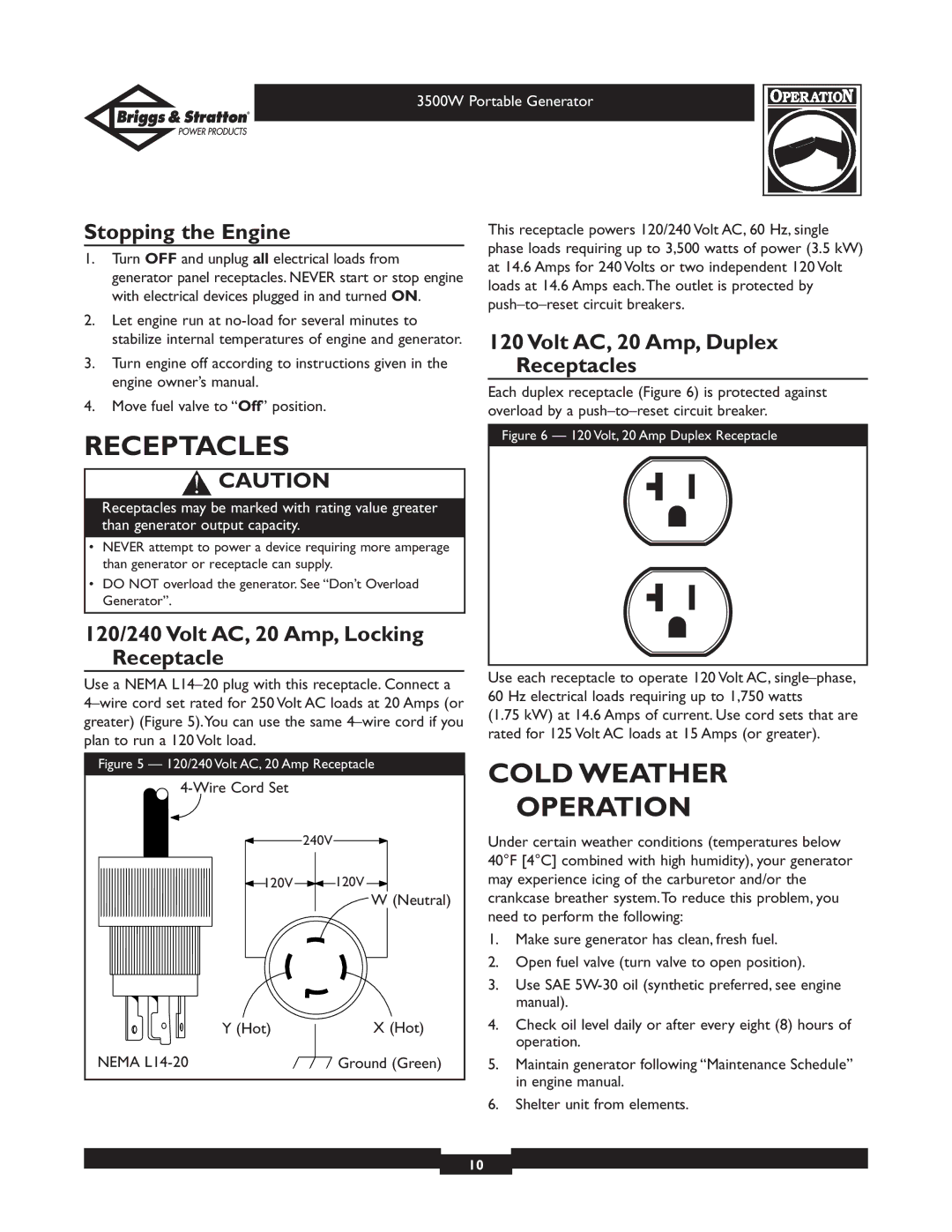
3500W Portable Generator
Stopping the Engine
1.Turn OFF and unplug all electrical loads from generator panel receptacles. NEVER start or stop engine with electrical devices plugged in and turned ON.
2.Let engine run at
3.Turn engine off according to instructions given in the engine owner’s manual.
4.Move fuel valve to “Off” position.
RECEPTACLES
![]() CAUTION
CAUTION
Receptacles may be marked with rating value greater than generator output capacity.
•NEVER attempt to power a device requiring more amperage than generator or receptacle can supply.
•DO NOT overload the generator. See “Don’t Overload Generator”.
120/240 Volt AC, 20 Amp, Locking Receptacle
Use a NEMA
This receptacle powers 120/240 Volt AC, 60 Hz, single phase loads requiring up to 3,500 watts of power (3.5 kW) at 14.6 Amps for 240 Volts or two independent 120 Volt loads at 14.6 Amps each.The outlet is protected by
120 Volt AC, 20 Amp, Duplex Receptacles
Each duplex receptacle (Figure 6) is protected against overload by a
Figure 6 — 120 Volt, 20 Amp Duplex Receptacle
Use each receptacle to operate 120 Volt AC,
(1.75 kW) at 14.6 Amps of current. Use cord sets that are rated for 125 Volt AC loads at 15 Amps (or greater).
Figure 5 — 120/240 Volt AC, 20 Amp Receptacle
240V
120V ![]() 120V
120V
W (Neutral)
Y (Hot) | X (Hot) |
NEMA | Ground (Green) |
COLD WEATHER
OPERATION
Under certain weather conditions (temperatures below 40°F [4°C] combined with high humidity), your generator may experience icing of the carburetor and/or the crankcase breather system.To reduce this problem, you need to perform the following:
1.Make sure generator has clean, fresh fuel.
2.Open fuel valve (turn valve to open position).
3.Use SAE
4.Check oil level daily or after every eight (8) hours of operation.
5.Maintain generator following “Maintenance Schedule” in engine manual.
6.Shelter unit from elements.
10
